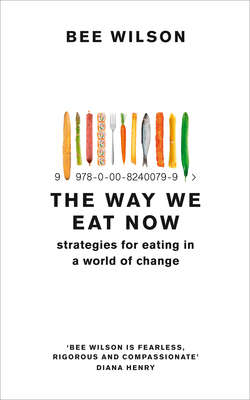Читать книгу The Way We Eat Now - Би Уилсон - Страница 20
The stigmatised majority
ОглавлениеIn most countries, the majority of people eating today are overweight or obese. Yet there has been remarkably little discussion of how the overall experience of eating is affected by this change. We wring our hands about the ‘obesity crisis’ but we do not pay much attention to how it feels to eat in the modern world as a person with obesity. Culturally, we have not yet adapted to the new reality and we continue to hold up slim bodies as ‘normal’. This is sad, not least because the psychology of fat shaming is one of the reasons most people with obesity find it so hard to lose weight.
The fact that weight stigma is a problem has been known since the 1960s. A series of studies carried out by sociologists in the early 1960s found that when shown pictures of six children and asked to rank them in order of preference, ten-year-old American girls consistently ranked the girl with obesity as the least preferred, lower in the friendship stakes than a child in a wheelchair, a child with facial disfigurement or a child with an amputated arm.24
In 1968, a German-American sociologist called Werner Cahnman published an article titled ‘The Stigma of Obesity’. In it, Cahnman documented the terrible discrimination suffered by young people with obesity in America, based on a series of thirty-one interviews he conducted at an obesity clinic in New York City. They told him stories of rejection and ridicule, of doors slammed and opportunities lost. Rejection of people with obesity ‘is built into our culture’, wrote Cahnman. In 1938, as a young Jewish man, Cahnman had been interred in the Dachau concentration camp. After his escape, he emigrated to the US, where he spent much of his career as a sociologist considering the various forms that social prejudices took. To him, it was clear that being overweight in America was not just seen as ‘detrimental to health’ but as ‘morally reprehensible’.25
The worst aspect of weight stigma, Cahnman suggested, was that it created an internalised sense of shame from which the obese ‘cannot free themselves’. In the fifty years since Cahnman’s article was published, much research has been done confirming that weight stigma has damaging effects on the health and wellbeing of the stigmatised.
Yet stigma about being overweight or obese goes almost unchallenged. Negative messaging about fatness is the norm rather than the exception in our culture and has become a global phenomenon. There used to be numerous cultures where non-thin bodies were celebrated, but a study from 2011 found that fat stigma has now spread to Mexico, Paraguay and American Samoa. Meanwhile in Western societies, psychologist A. Janet Tomiyama has found, weight stigma is now ‘more socially acceptable, severe, and in some cases more prevalent than racism, sexism and other forms of bias’.26
Clearly, not everyone who is overweight or obese is equally sensitised to negative stereotypes about weight. Some are cheerfully unfussed by such questions as body mass index, while others find solace and pride in the ‘body acceptance’ movement that celebrates human bodies in all their diversity. Nevertheless, the indications are that millions of people worldwide are negatively affected – both psychologically and physically – by obesity stigma.
The history of public health is littered with examples of health-related stigma, and it never ends well for those affected. Cholera, syphilis and tuberculosis were all impossible to bring under control when the sufferers were seen as morally to blame. In 2017, an editorial in the British medical journal The Lancet argued that health systems will never effectively prevent childhood obesity until it stops being treated as a personal moral failing caused by faulty willpower. Until there is collective recognition that obesity is ‘not a lifestyle choice’, argues The Lancet, the prevalence of obesity is unlikely to be reduced.27
In the absence of collective action, the main way anyone can shield themselves against an obesogenic world is through embarking on an individual programme of diet and exercise. Yet here, again, the stigma of weight serves to thwart us. There is now a gathering body of evidence that obesity stigma negatively affects a person’s efforts to lose weight. This will come as no surprise to anyone who has ever tried to force themselves on a diet, only to fall rapidly off the wagon, thwarted by a debilitating sense of shame.
When I was an overweight teenager, the whole experience of eating was quite different to how it feels to me now, as a so-called ‘normal weight’ middle-aged woman. It was the difference between eating in an atmosphere of freedom – as I am lucky enough to do now – and eating in a cloud of judgement. I remember feeling that I did not really have permission to eat most of the foods that I wanted to eat, especially in public. Because of my age (I was born in 1974), I feared fat more than carbohydrates. This translated into years of pointlessly and joylessly denying myself butter, because you were not allowed to eat butter – or so I believed – if you were bigger than a size 10 (a US size 6).
During my overweight years, I had two completely different ways of eating, one for public and one for private. In public – most of the time, anyway – I ate what I believed to be socially acceptable. When I was at university, my best friend was anorexic and I felt that if I followed her lead, I must be above reproach. I ate dreary salads made from shredded iceberg lettuce and dried-up chicken breast with no dressing. I ate tiny portions of unseasoned poached salmon and cottage cheese. I drank gallons of Diet Coke. All of these items had an unpleasant overtone of duty.
